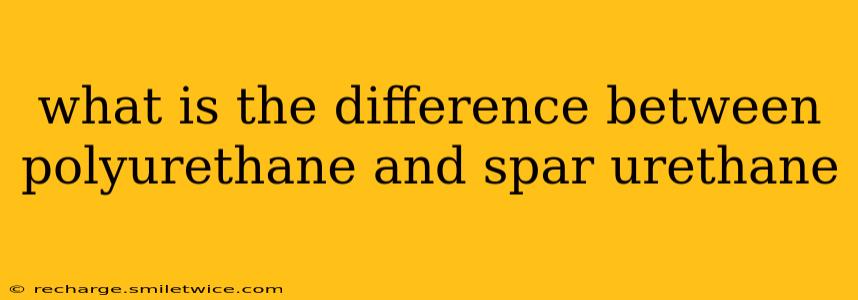What's the Difference Between Polyurethane and Spar Urethane?
Choosing the right finish for your project, whether it's furniture, a deck, or a boat, can be tricky. Two popular choices often leave DIYers and professionals alike wondering about the differences: polyurethane and spar urethane. While both are durable finishes offering protection against the elements, they are designed for different applications and have distinct characteristics. This article will delve into the key distinctions, helping you make the informed decision for your next project.
What is Polyurethane?
Polyurethane is a versatile family of coatings known for its hardness, durability, and resistance to abrasion and scratches. It's a common choice for furniture, floors, and even some exterior applications. Different types of polyurethane exist, varying in their gloss level (from high-gloss to satin to matte) and application methods (oil-based, water-based). Oil-based polyurethanes offer superior durability and water resistance, but they have longer drying times and require solvents for cleanup. Water-based polyurethanes are easier to clean up and have lower VOCs (volatile organic compounds), making them a more environmentally friendly option. However, they might not be as durable as their oil-based counterparts.
What is Spar Urethane?
Spar urethane is a specialized type of polyurethane designed specifically for exterior applications, particularly those exposed to harsh conditions like moisture, UV radiation, and temperature fluctuations. The "spar" designation historically referred to the wooden spars of sailing ships, highlighting its ability to withstand the rigors of marine environments. Spar urethane is formulated for superior UV protection and flexibility, preventing cracking and peeling caused by sun exposure and temperature changes. This makes it ideal for boats, outdoor furniture, and exterior trim.
What are the key differences between polyurethane and spar urethane?
This is a frequently asked question, and the answer hinges on intended use and environmental exposure.
-
UV Resistance: Spar urethane offers significantly better UV protection than standard polyurethane. This is critical for items exposed to prolonged sunlight. Standard polyurethane will eventually yellow and degrade under intense UV exposure.
-
Flexibility: Spar urethane is formulated to be more flexible, allowing it to expand and contract with changes in temperature and humidity without cracking or peeling. This is crucial for exterior applications.
-
Water Resistance: While both offer water resistance, spar urethane generally boasts superior protection against moisture, making it suitable for areas prone to rain, snow, or even submersion (in the case of boats).
-
Durability: Both are durable, but spar urethane typically offers better long-term durability in harsh outdoor conditions.
-
Cost: Spar urethane is usually more expensive than standard polyurethane due to its specialized formulation.
Is spar urethane necessary for all outdoor projects?
No. While spar urethane is ideal for high-exposure outdoor projects like boats and exterior trim, it's often overkill for applications less prone to harsh weather, such as patio furniture under a covered area. A high-quality exterior-grade polyurethane might suffice in these cases.
Can I use polyurethane on a boat?
While you can technically use standard polyurethane on a boat, it's generally not recommended for areas subject to significant water exposure. The lack of UV protection and flexibility will lead to premature deterioration. Spar urethane is the better choice for a boat's hull and other exterior parts.
Which type of finish should I choose?
The best choice depends on your project's requirements:
- Interior projects or lightly exposed outdoor areas: Standard polyurethane will often suffice.
- High-exposure outdoor projects, boats, or marine applications: Spar urethane is the preferred option.
By understanding the key differences between polyurethane and spar urethane, you can select the appropriate finish to protect your project and ensure its long-term durability. Remember to always follow the manufacturer's instructions for application and drying times for optimal results.
